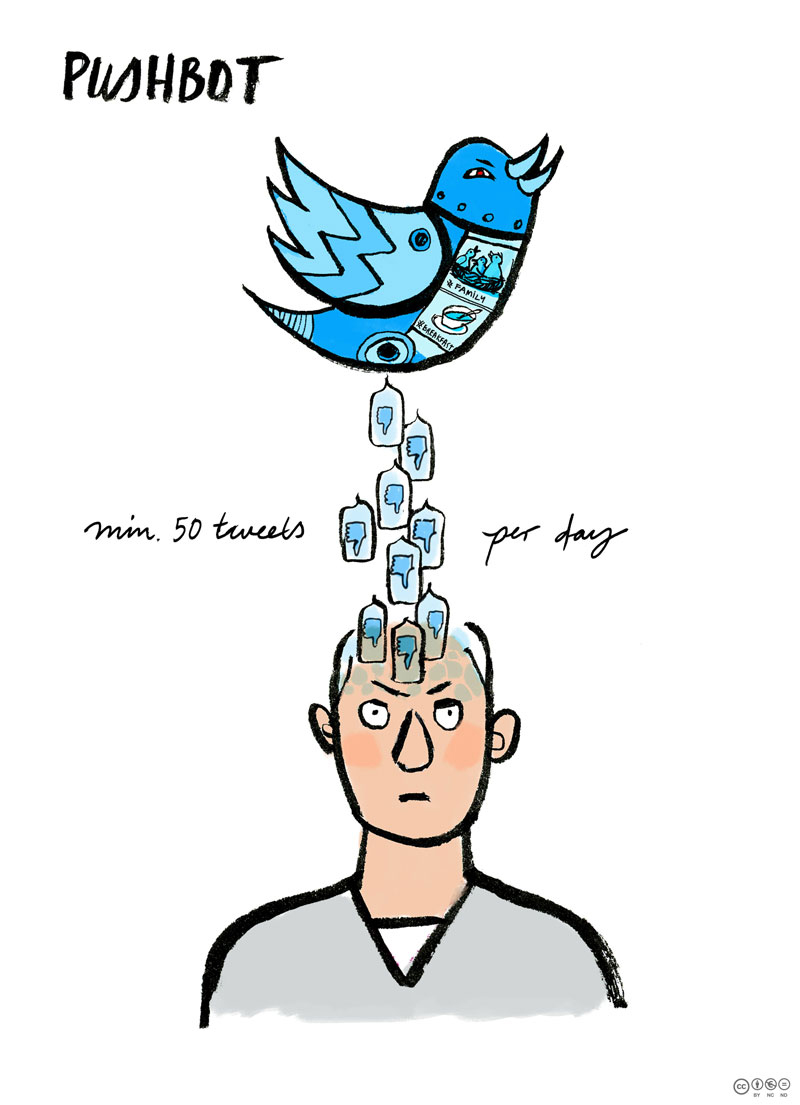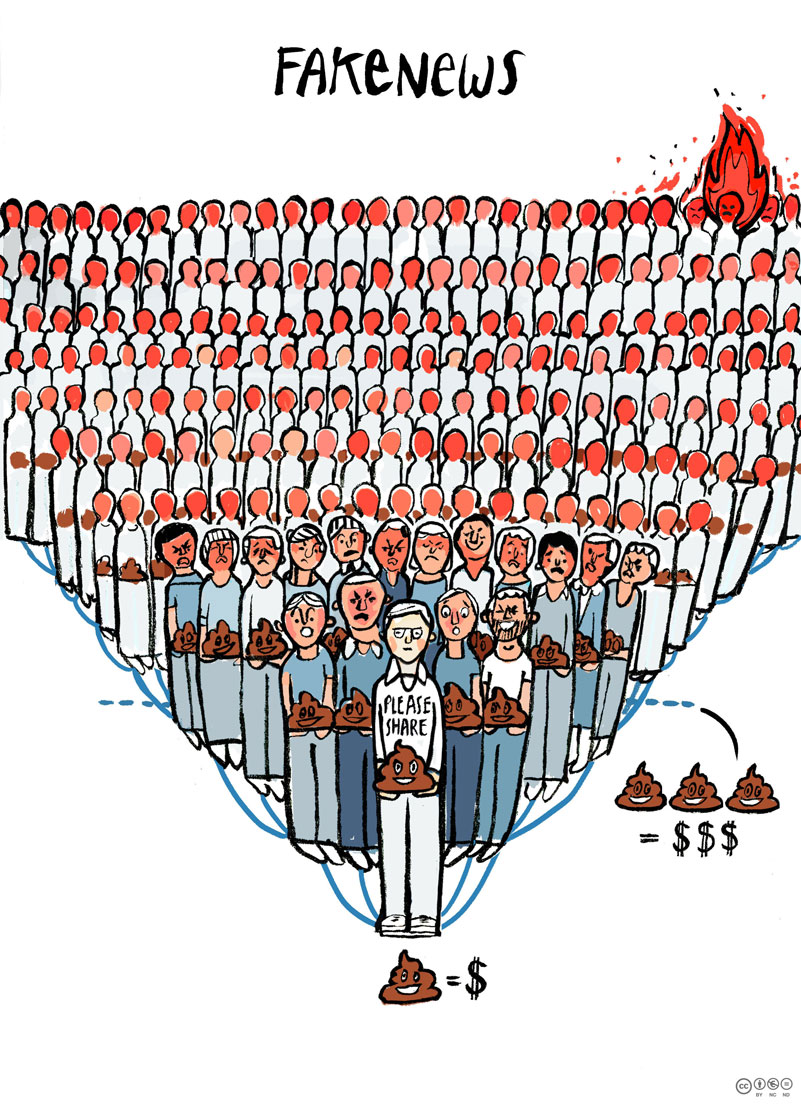Illustration and Consultation
PICTURE POLITICS is a project by Goethe Institute, inviting international visual artists to react to nationalist and populist tendencies all over Europe. It was set up by several workshops and illustrated contributions by international artists and ignited by my initiative BILDKORREKTUR, a collaborative image campaign against xenophobia. I served PICTURE POLITICS as advisor and ambassador. My visual contribution is a series on Media Awareness - digital manipulation for beginners. It’s open source, so feel free to share and spread. It dates back to 2016.
Illustration: Alexandra Klobouk
Partner: Goethe Institute
Initiating Project: Bildkorrektur
Media Awarness Kit for PICTURE POLITICS of Goethe Institute
PICTURE POLITICS is a project by Goethe Institute, inviting international visual artists to react to nationalist and populist tendencies all over Europe. It was set up by several workshops and illustrated contributions by international artists and ignited by my initiative BILDKORREKTUR, a collaborative image campaign against xenophobia. I served PICTURE POLITICS as advisor and ambassador. My visual contribution is a series on Media Awareness - digital manipulation for beginners. It’s open source, so feel free to share and spread. It dates back to 2016.
Illustration: Alexandra Klobouk
Partner: Goethe Institute
Initiating Project: Bildkorrektur


Push bots are commonly referred to as social bots or AI—computer programs capable of simulating human behavior. They post, comment, and interact on social networks, mimicking real users. By disseminating hundreds or thousands of posts and comments, push bots can significantly influence public opinion. They were successfully utilized, for example, during the Ukraine conflict to manipulate public sentiment in favor of Russia, as well as during the US presidential election in 2016. Reportedly, 32.7% of pro-Trump posts and 22.3% of pro-Clinton posts were generated by bots. Sources: Oxford university study via BBC / Deutschlandfunk

Fake news is intentional misinformation spread for various purposes. It is often created for commercial gains or political agendas, as sensational fake news tends to generate more clicks than genuine content, thereby generating revenue. Each click contributes to financial gain. When fake news is shared within a circle of friends on platforms like Facebook, popular posts become visible to a much larger audience, facilitating widespread dissemination. This has the potential to significantly influence public opinion, elections, and has already led to violent actions in the past.
Sources: WDR / Wikipedia / NEW YORK TIMES

Pull bots are commonly referred to as social bots or AI (artificial intelligence) capable of simulating human behavior. Nowadays, numerous online shopping or booking processes are carried out by pull bots. These bots assist users and can successfully tackle increasingly complex tasks.
Sources: Deutschlandfunk / Wikipedia

Echo chambers are filter bubbles that develop as we navigate the internet through social media and search engines. As we like, subscribe, and share information, algorithms use this data to tailor offers specifically for us. While this customization can be beneficial for product recommendations, it becomes risky in the realm of opinion formation. When providers only suggest information that aligns with our existing views, it fosters the repetition of narratives, reinforces prejudices, and promotes one-sided, dogmatic visions.
Sources: ZEIT / Wikipedia
*T-Shirt: llustration of Twitter echo chambers. Followers of Hillary Clinton and followers of Donald Trump hardly connect and therefore are not aware of the others narratives and worldviews.
Sources: NZZ / VICE
Studio Alexandra Klobouk
Lausitzerstr. 10
10999 Berlin
hey(at)alexandraklobouk.com